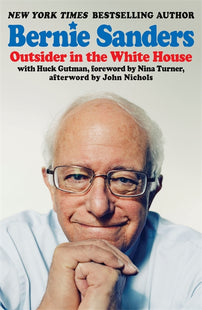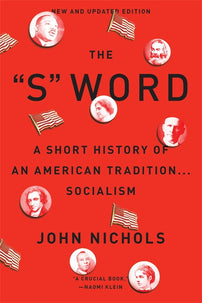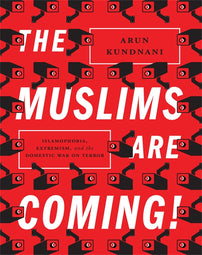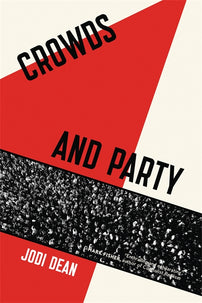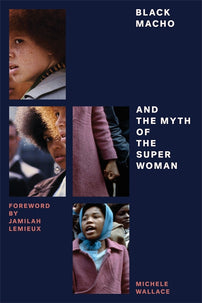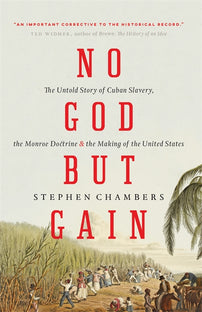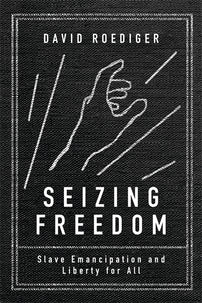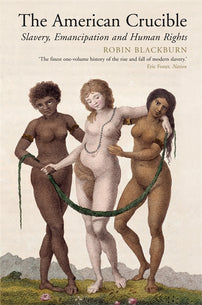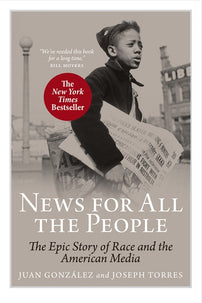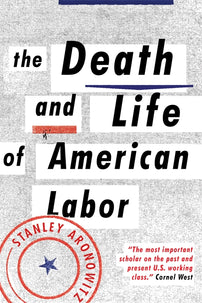US Politics Reading List
Socialism is more popular than ever in the US. This US politics and history reading list will introduce readers to key socialist ideas through an American lens.

What does it mean that the most popular politician in the US is a democratic socialist? With a majority of young people expressing a dissatisfaction with capitalism, this is the moment to embrace the resurgence of socialist ideas by picking up some recently published and classic books on socialist history and American politics.
[book-strip index="1" style="buy"]
The political autobiography of the insurgent presidential candidate
“Bernie’s been in the forefront of all the crucial environmental fights of recent years.” – Bill McKibben, cofounder of 350.org
[book-strip index="2" style="buy"]A short, sharp, irreverent rejoinder to right-wing red-baiting.
“Of all the giant slayers now afoot in the great American desert, John Nichols’s sword is the sharpest, his footwork the most graceful, his brain the most cunning.” – Gore Vidal
“[A] search for the legacy of our homegrown radicals.” – Washington Post
Powerful critique of UK and US surveillance and repression of Muslims and prosecution of homegrown terrorism
“A bold new look at the much discussed issue of surveillance, documenting how it impacts the communities most affected – American and British Muslims. With incisive reporting from across the US and the UK, combined with trenchant analysis, Arun Kundnani captures what it feels like to be a ‘suspect population.’” – Deepa Kumar, author of Islamophobia and the Politics of Empire
[book-strip index="4" style="buy"]How do mass protests become an organized activist collective?
“Jodi Dean’s new book isn’t just a timely reminder that to change our thoroughly and deliberately atomized society demands collective action and militant organization; it is also a passionate analysis of the fractured passion of shared political commitment, linking the enthusiasm of group experience with the sustained and steady discipline of popular empowerment.” – Peter Hallward, author of Damming the Flood
“Deserves careful reading.” —The New Republic
“The most interesting implication of Anderson’s argument is that the long catalog of US foreign policy disasters—the overthrow of Mohammad Mossadegh in Iran in 1953, the Bay of Pigs fiasco in 1961, the twin quagmires of Vietnam and Iraq—were more than just errors of presidential judgment. They were the price America recurrently pays for the hubristic embrace of a messianic foreign policy, one that never disciplined its priorities according to rationally defined national interests.” – New York Review of Books
[book-strip index="6" style="buy"]“Courageous, outspoken, clear-eyed.”—Publishers Weekly
“Serious, well-written, effective in its demystification, valuable as a model of hardheaded but caring analysis, principled in its criticism ... Wallace’s fearless presentation of her analysis quite takes the breath away.”
– Washington Post
The decisive role of the illegal slave trade in the making of the United States
“Through huge investment in Cuba, American interests, including northern interests, deepened their dependence upon slavery and the slave trade, at exactly the moment it was supposed to be in decline. No God But Gain is an important corrective to the historical record.” – Ted Widmer, author of Brown: The History of an Idea
Forceful and detailed account of the struggle for “freedom” after the American Civil War
“Evocative and inspiring, Seizing Freedom represents a landmark study by one of the foremost scholars of the history of race and labor in our time that will fundamentally challenge the way we understand the moral and practical power of emancipation.” – Thavolia Glymph, Duke University
How slavery shaped the market economy and abolitionists gave us our ideals
“The finest one-volume history of the rise and fall of modern slavery.”
– The Nation
“Blackburn describes emancipation in all its vexed, indeterminate grandeur, propelled by violent clashes, public debate, harrowing exposés, and the consolidation of new notions of freedom and equality.” – Greg Grandin, Guardian
Bestselling narrative history of American media that puts race at the center of the story.
“Truly a masterpiece; I could not put it down. After years of research, Juan González and Joseph Torres have produced a book that will be nothing short of mandatory reading for all who care about the media or democracy. It will change how you think about media and American history.” – Robert W. McChesney, coauthor of The Death and Life of American Journalism
[book-strip index="11" style="buy"]“The most important leftist book of the year, and probably the decade.”
—Charles Mudede, The Stranger
“A must read for everyone who is concerned about where the future of capitalism might lie.” – David Harvey, CUNY Graduate Center, author of A Brief History of Neoliberalism
[book-strip index="12" style="buy"]The decline of the American union movement—and how it can revive, by a leading analyst of labor
“Nothing less than a brilliantly argued demand for the labor movement to shed its ill-conceived twentieth-century ‘partnership’ garb with Capital and the Democratic Party and reinvent itself in the twenty-first century.” – Rose Ann DeMoro, Executive Director, National Nurses United
Irregular Army
How the US Military Recruited Neo-Nazis, Gang Members, and Criminals to Fight the War on Terror
by Matt Kennard
Reveals the US military’s “don’t ask, don’t tell” approach to extremists in its ranks.
“Matt Kennard’s careful and judicious investigations reveal an aspect of the modern US military system that should be of deep concern to American citizens.” – Noam Chomsky
“Armies corrupt and disintegrate when they fight colonial wars. Matt Kennard’s outstanding, meticulous book exposes the secret recruiting of criminals in an army whose wars are criminal. This is journalism as it should be.” – John Pilger
It Started in Wisconsin: Dispatches from the Front Lines of the New Labor Protest
Edited by Paul Buhle and Mari Jo Buhle
Foreword by Michael Moore
Introduction by John Nichols
First-hand accounts of the largest pro-labor mass mobilization in modern American history
“[A] collection of stories from those that participated in one of the most inspiring movements to erupt in the US heartland in decades. Those stories provide the observer from afar with a fairly universal and nuanced look at the daily lives of those involved in organizing, occupying, reporting and otherwise participating in those weeks of popular democracy.” – Ron Jacobs, Counterpunch, 02 March 2012
“[W]ill help readers, regardless of their own stance, to understand much of what's at stake in the country's current labor and political battles.” – Carol J. Elsen, Library Journal, 15 March 2012
